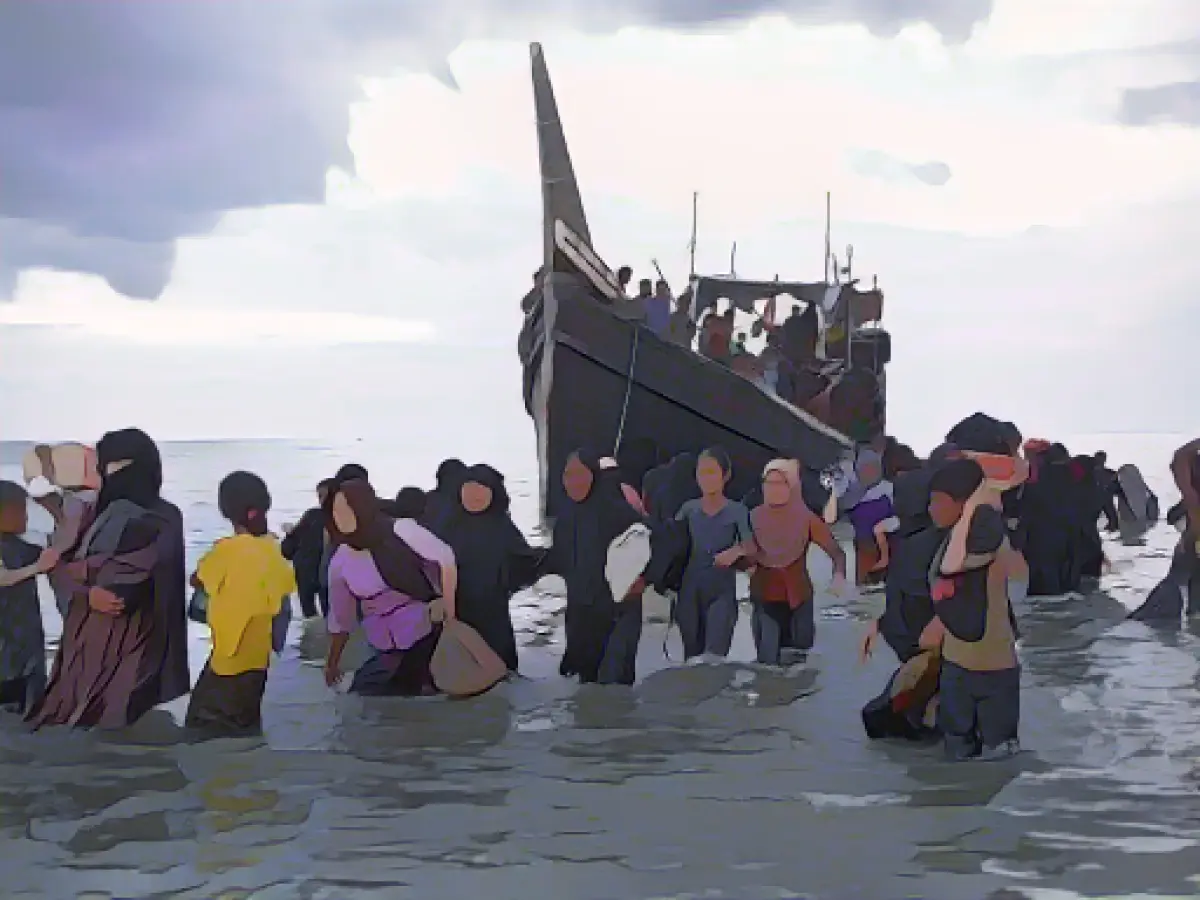Sent back to sea: Drama surrounding Rohingya refugees
A drama involving desperate Rohingya refugees from Myanmar has been unfolding in Indonesia for days. In the past week alone, five boats with almost 900 people on board have landed in the province of Aceh in the north of the island of Sumatra, according to the UN refugee agency UNHCR.
Around 250 of them had been on an odyssey in the sea since Thursday, after the local population had prevented them from landing in two places and sent the exhausted people back out to sea. It was only after an appeal by the United Nations and several human rights groups that they were finally able to go ashore on Sunday.
According to Mitra Salima Suryono, a spokeswoman for the UNHCR in Indonesia, the refugees spent between one and two months at sea after setting sail from Cox's Bazar in Bangladesh. The refugee camp there, consisting of many individual camps with 600,000 to one million refugees from the former Burma, is considered to be the largest in the world. Most people have been living there for years in makeshift shelters.
Brutally expelled from Myanmar in 2017
The Rohingya are a Muslim minority who were brutally expelled from their predominantly Buddhist homeland of Myanmar in 2017. Hundreds of thousands of people fled the military offensive in the state of Rakhine, which borders Bangladesh to the west. The United Nations describes the persecution of the Rohingya as genocide. The members of the minority lost their citizenship as a result of a law passed by the Myanmar military junta in 1983.
"In their search for solutions, the Rohingya refugees are once again taking life-threatening risks," said Ann Maymann, head of the UNHCR in Indonesia. "These are journeys of people who have no chance and have lost hope." Many fishermen and residents in Aceh had initially welcomed the first boats last week and provided the refugees with food and shelter. But one of the boats was turned away at two coastal towns.
The Indonesian government, which has not signed the Geneva Convention on Refugees, is often accused of inaction in dealing with refugees. Activists have called for the Rohingya to be granted humanitarian aid, safety and protection and for the principle of non-refoulement to be respected. "Indonesia has an obligation to help them," Usman Hamid, Executive Director of Amnesty International in Indonesia, told the German Press Agency.
The UN and human rights groups urgently appealed for the safe landing of over 250 Rohingya refugees, who had been sent back to sea by the local population in Indonesia. This occurred after their initial attempts to land in two places were prevented, forcing them to endure at sea for several days. (UN, Rohingya, Refugees, Migration)
The persecution of Rohingya, a Muslim minority, is widely recognized as genocide by the UN, following their brutal expulsion from Myanmar in 2017. Despite international calls for their protection and humanitarian aid, the Indonesian government, not a signatory to the Geneva Convention on Refugees, has been criticized for inaction in handling the Rohingya refugee crisis. (UN, Rohingya, Human rights, Myanmar)
Source: www.dpa.com








